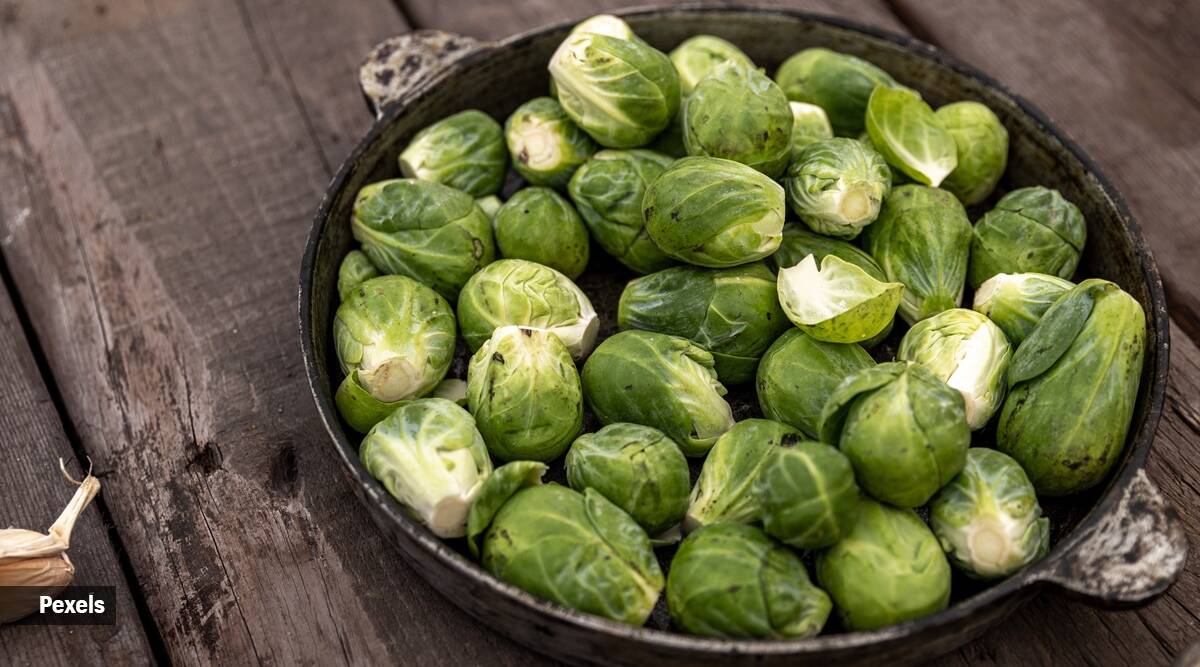It all started with a Christmas and Thanksgiving ritual, with micro-mini cabbages that are delicately cut, cleaned and cooked to make a nutritious side dish or main dish. But given their superfood value, nutrient density, and fat-reducing qualities, they’ve been co-opted around the world. That’s why this Belgian vegetable is now grown in India, mainly in the Himalayas and Nilgiris, and has become a popular winter indulgence.
Brussels sprouts are a member of the cruciferous vegetable family like cabbage, cauliflower, kale, and broccoli. They resemble baby sprouts and are rich in many nutrients that have been linked to various health benefits. Most importantly, they stimulate the body’s metabolism to improve its ability to burn fat and calories, helping you lose weight. Its rich load of fiber generates satiety and delays hunger pangs.
A superfood for all ages
• They are low in calories but nutritionally dense, high in fiber and vitamins (such as vitamin K, vitamin C, thiamine, vitamin B6, and folate), and mineral-enriched (such as potassium, iron, magnesium, and phosphorus).
• Due to their high fiber content, they can help relieve constipation by adding bulk to food.
• Regulate serum cholesterol levels and therefore decrease the risk of developing coronary heart disease.
• High fiber content makes this vegetable low on the glycemic index and ideal for people with diabetes, as it helps maintain blood sugar levels within normal ranges.
• Promote satiety and therefore weight maintenance
• The vitamin K content of the vegetable may help protect against osteoporosis by stimulating bone metabolism. Vitamin K is also important for blood clotting.
• Is high in vitamin C, an antioxidant, which is important for the development of immunity, iron absorption, collagen production, tissue growth and repair, prevention of cell damage, and reduction of inflammation.
• Brussels sprouts are a healthy addition to any diet and are easy to incorporate as side dishes and main dishes. People often enjoy them roasted, boiled, sautéed or baked. You can also add Brussels sprouts to pasta dishes, frittatas, or stir-fries for a tasty and nutritious dinner.
Homemade Alternatives to Brussels Sprouts
Indian alternatives to Brussels sprouts are broccoli, cabbage, cauliflower, kale, turnip, and radish. And contrary to what many think, they can be suitable substitutes.
• Cabbage – Both cabbage and Brussels sprouts are high in vitamin C and dietary fiber. Cabbage contains more alpha-carotene than Brussels sprouts. Regular vegetable dishes can be made or added to coleslaw for a tastier version.
• Cauliflower – Rich in vitamin C, it has a similar flavor and texture when added to foods. It can be made into sabzis, sauce bases, or as a vegan steak.
• Radish: both are high in vitamin C and potassium. However, radish has 63 percent fewer calories than Brussels sprouts. It can be prepared as a sabzi or as a pickled garnish.
• Turnips: Both roots and leaves are high in vitamin C. Turnip greens are high in fat-soluble vitamins K and A. They can be added boiled to mashed potatoes or made into baked cakes and chips.
• Kale: Both Brussels sprouts and kale are high in vitamin C, vitamin K, calcium, dietary fiber, and potassium. Sprouts contain more folic acid and are an excellent source of vitamin A. Cut them up to use as a pizza topping, chop them, and add them to scrambled eggs, salads, and casseroles.
• Broccoli – Just like Brussels sprouts, broccoli is also packed with nutrients. Contains high levels of vitamin C, fiber and folic acid. Both are similar in terms of taste and texture as well. They can be added to stir-fry dishes or soups.
The best way to have brussels sprouts
• Drizzle roasted sprouts with olive oil, black pepper, and garlic.
• Cut into thin slices and mix raw with salad greens.
• Add nuts and dried berries to toasted sprouts for a festive garnish.
• Fry the sliced Brussels sprouts for a crispier texture.
In facts and figures
One cup of raw Brussels sprouts provides:
37.8 calories
0.264g fat
7.88g of carbohydrates
2.97g protein
.
